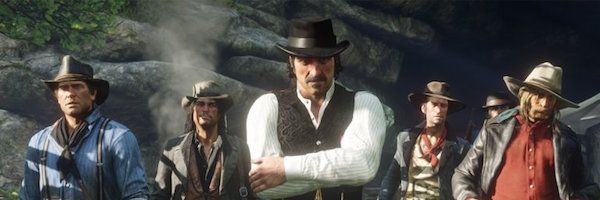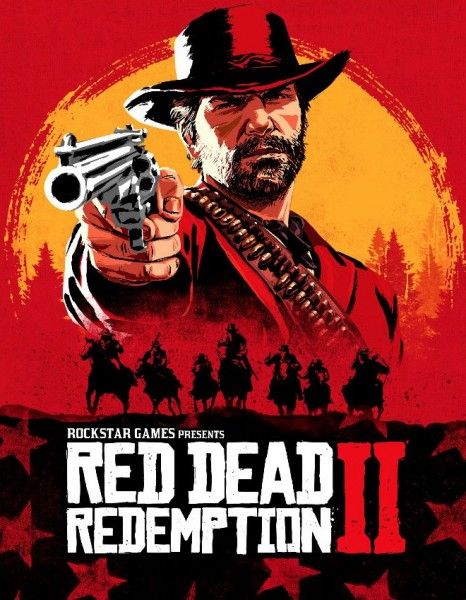Spoilers ahead for Red Dead Redemption 2.
One of the most fascinating characters I’ve encountered in a video game is gang leader Dutch Van Der Linde. We got a glimpse of Van Der Linde in the first Red Dead Redemption but he almost feels tacked on to the narrative. He’s the bigger boss, but since you spend the first two acts chasing down Bill Williamson, going after Dutch in Act 3 doesn’t have the same punch. At best we learned that “Dutch went crazy” and now he’s taken up with some Native Americans to serve as his gang.
Red Dead Redemption 2 is a far more incisive look into Dutch’s psychology, and it makes him a fascinating character until he just becomes infuriating. Although you play as Arthur Morgan, Dutch is the leader of the gang and the game starts out with him as a father figure who’s willing to do whatever it takes to protect “his family”. He’s someone who takes in strays, and yet there’s a hint of ruthlessness about him where you wonder if he’s fiercely protective of the people he cares about or if those people just feed into his own ego.
As the game unfolds, you realize that it’s about ego for Dutch, although his decisions also smack of someone who keeps doubling down every time they lose. The argument could be made that if Dutch had been more successful in one of his earlier endeavors, the gang could have had a better ending, but it’s clear from the outset, as you trudge through the snow and learn that two of your compatriots are already dead from a job gone wrong in Blackwater that things are never going to get “better”. The frontier is closing, the Wild West is ending, and Dutch’s solution is “Let’s steal enough money to go to Tahiti.”
Dutch is at his most captivating when he’s trying to convince others he has a moral code. He seems genuinely bereaved when a gang member dies (the motion capture and facial animations in this game are mind-blowing), and that if he has a flaw, it’s that he cares too much. This kind of sympathy is vital because we need to understand why Arthur, John, and everyone else would follow someone who doesn’t even seem like the brains of the operation (that would be Hosea, who’s the de facto co-leader of the gang).
But as the game continues and Dutch unravels, it raises the question if he was always bad or if misfortune made him lose his way. It’s an interesting question, but one that’s ultimately irrelevant because in the second half of the game, you’re stuck following someone you don’t respect, doing jobs you don’t agree with, and wishing you could just leave. For a game that supposedly offers escapism, it’s bizarre to thrust the player right back into drudgery.
I imagine that there will be people out there who work a job they don’t like for a boss they don’t like, and it must be a weird experience to sit down and be like, “Alright, just got off my shift working for a guy I don’t respect. Time to fire up the old PS4 and work for a guy I don’t respect.” When Dutch “turns” (and to the game’s credit, it’s a slow, subtle transformation where you believe and understand why Dutch changes), he’s pretty much insufferable. He’s now completely susceptible to Micah’s flattery and becomes enraged at anything other than blind obedience. You’ll spend hours with Dutch chastising Arthur for his “doubting” even though Dutch has screwed up time and again.
It’s a unique kind of villainy that feels real and immediate to the point where you don’t really want it in your recreation. I like that Dutch isn’t some moustache-twirling villain with plans of world domination. But his weaknesses are so recognizable to anyone who recognizes what poor leadership looks like. His ineptitude, his vanity, his insecurity, and his foolishness are well-defined, achingly real, and if you want to finish Red Dead Redemption 2, you just have to clock in and go along for the ride.


